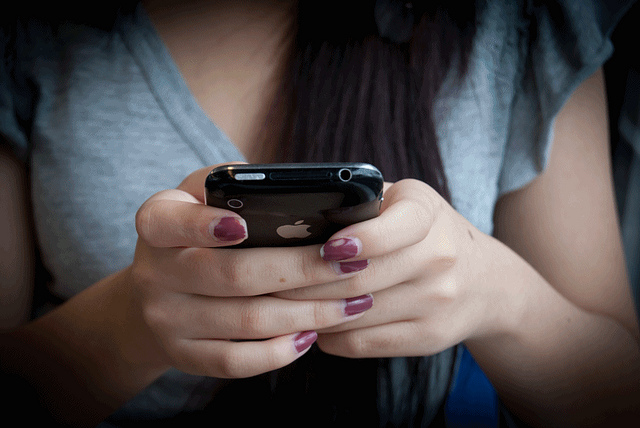
I recently read an article discussing University of Missouri Ph.D. candidate Russell Clayton’s new study that explores the correlation between the use of social media sites, specifically Twitter and Facebook, and infidelity. There’s actually a website dedicated to sharing stories from those who have experienced cheating on social media, and providing them with resources to help stay aware of the behaviors and activities of potentially straying partners.
So I asked myself: Why does social media have an allure great enough to destroy relationships, and what is it about the relationships we form over the internet that create enough friction to destroy even long-term relationships?
Ease of connectivity
There are 227 million active users on Twitter, Facebook has 1.23 billion, and the numbers are only on the rise. Facebook users have an average of 338 friends, with 200 being the median—those numbers don’t even begin to put a dent in the number of people you haven’t, but could potentially connect with.
To delve into this a little, I did a search of my name on Facebook just to see how many accounts named “Mara Johnson” I could theoretically interact with. My results yielded 100+ individuals, with only one person living in the same state as me, and her name was actually “Marija.” A large part of my results were to pages of “Marias,” “Tamaras,” and a few other variations. That means while I set out to search for a specific name or person, I ended up with several other people I never sought to connect with, but now I have the opportunity to do so simply with the click of my mouse. In terms of cheating, the same ease would of course apply to someone who was actively seeking relationships with others. No dressing up, no pickup lines at the bar, no time spent missing a moment in a Netflix binge—one’s next acquaintance is merely a click away.
Fantasy of connections made on social media
There is a sense of fantasy in social media interaction. The only way to discern who someone might be is to browse their page and formulate ideas about what they may be like based on their interests, photos or posts. With your imagination in tow, it’s easy to create unrealistic notions about the person on the other side of the computer. It’s even easier though to create an idealized version of yourself over the internet.
If you’ve never seen the documentary Catfish or the MTV show by the same name, they both detail the phenomenon of “catfishing”—setting up a false personal profile on a social networking site for fraudulent or deceptive purposes. The stories on the show typically follow individuals who have been engaging in romantic internet relationships for several months, and in some cases years. From an outside perspective, the stories are often so absurd it’s hard to believe anyone would fall for it, but it happens because the relationships themselves turn out to be fantastic in nature. More often than not, the interactions between these individuals are nearly perfect (aside from the fact that they’ve never met each other face-to-face).
People generally cheat because they aren’t happy in their current relationships. Using social media as a moderator, anyone can assume a faultless persona, and temper their real character to fit someone else’s ideals. For the unhappy, the appeal of seamlessly falling in and maintaining love is more than they can resist.
“Emotional cheating” trumps “physical cheating”
Many of the relationships and interactions online are just that—merely online. They often don’t result in physical activity at all, though that isn’t to say they aren’t sometimes sexual in nature. Regardless, since these relationships are restricted to the web, they are mental in nature; involving exchanges only of words and images, not physical touch. So, why are these small, careless conversations potentially so damaging to a relationship? Because emotional cheating is worse than physical cheating.
Sex is instinctive, even if at varied degrees or abilities to control those instinctive desires; therefore, psychologically speaking, it’s easier to forgive a physical affair. As Lisa Field says in the piece on emotional cheating, “…Mother Nature has hard-wired us for sex, and it doesn’t take much for us to give in to our impulses. A few drinks or a bad fight can cause us to become irrational and act out sexually. In the end, having sex is just sex. It won’t lead to an emotional connection.” Most of us don’t fall in love and build a relationship on a foundation of sex. It’s our emotional ties that keep our love alive. When someone chooses to mentally engage with another, it signifies a link that runs deeper than the surface-level nature of physical desire. That deep emotion can and often strips away at the core of a relationship, and it is difficult to rebuild on a damaged foundation.
We are now ten years from the advent of Facebook, meaning we’re just starting to have enough data to examine the actual role of social networking in our lives. With studies like Clayton’s emerging, and the continuing growth of social media, it will be interesting to see what really comes of our interactions with this technological medium, and how our relationships are affected.
Have you ever been on either side of infidelity involving social media platforms? What do you think about why social media is destroying romantic relationships? Share your stories and opinions with us.
